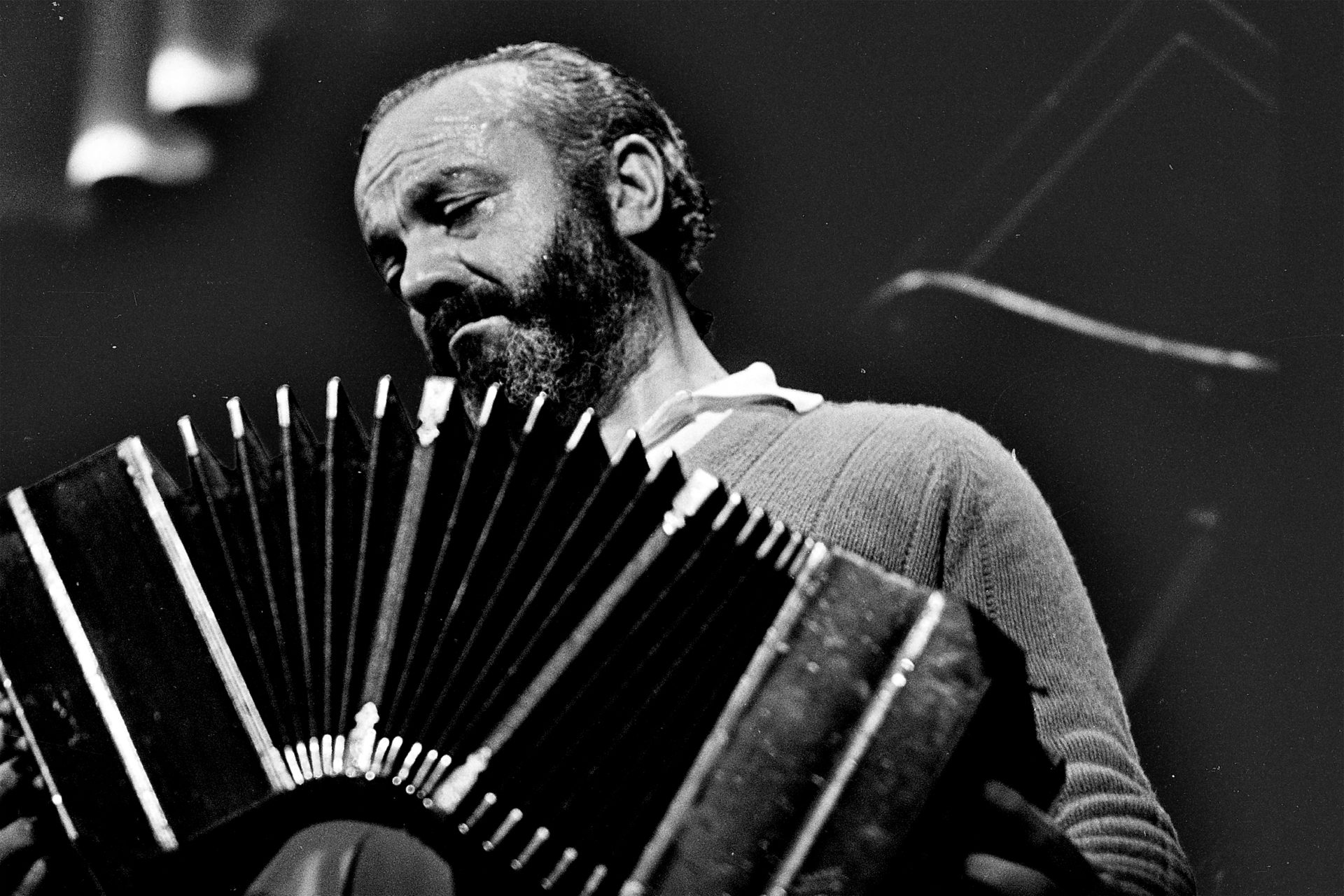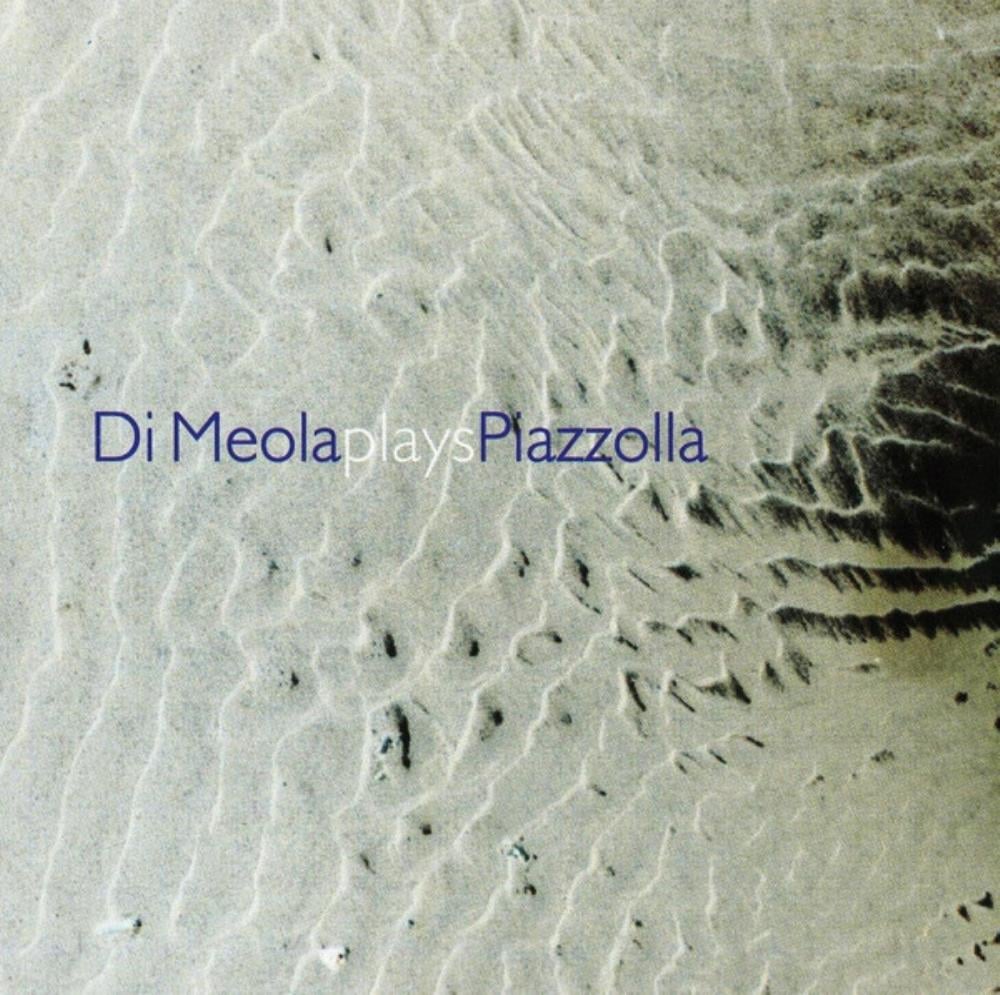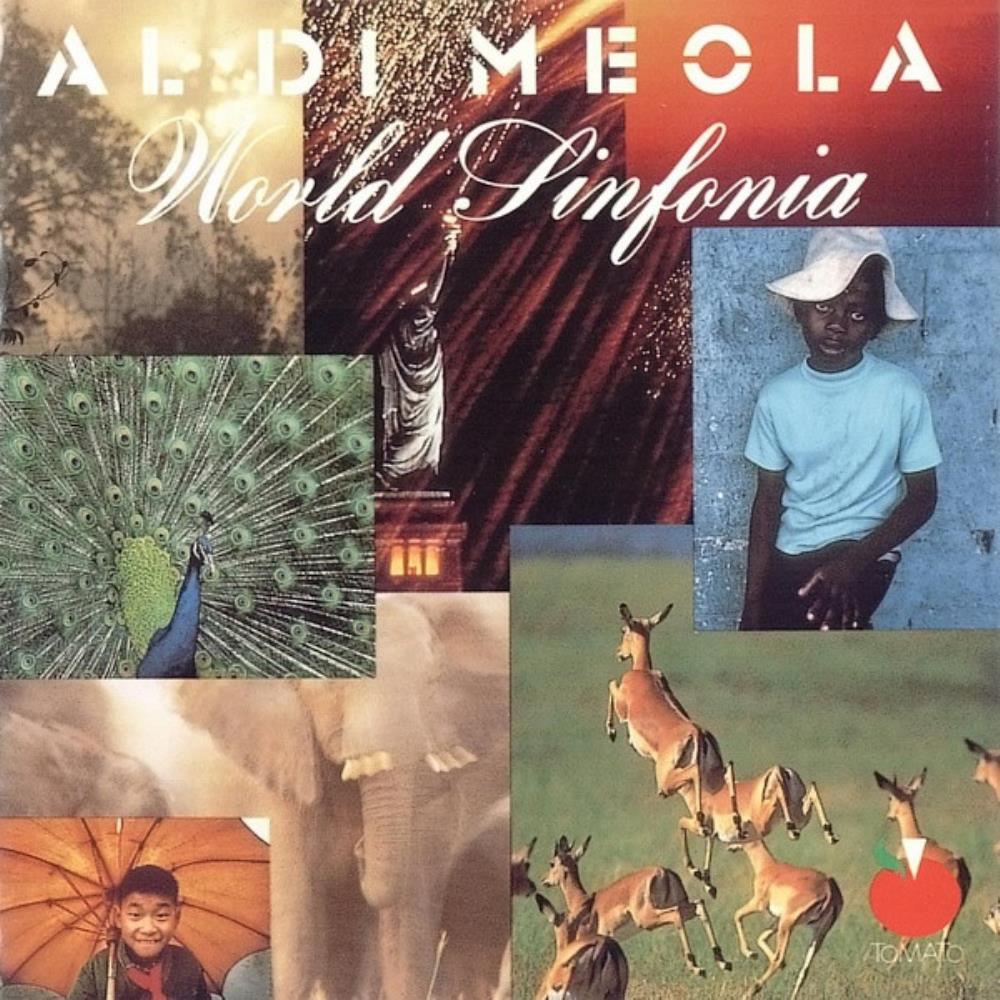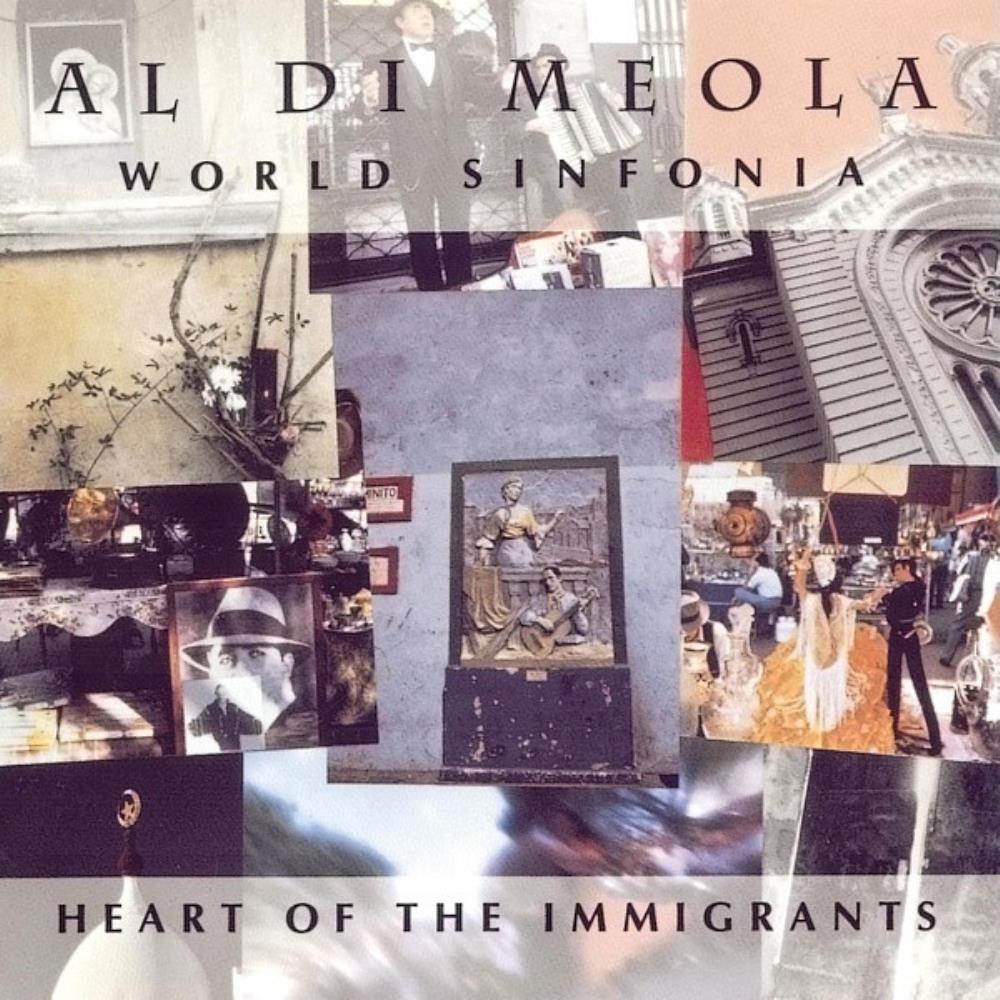Astor Piazzolla for Prog related
Printed From: Progarchives.com
Category: Progressive Music Lounges
Forum Name: Suggest New Bands and Artists
Forum Description: Suggest, create polls, and classify new bands you would like included on Prog Archives
URL: http://www.progarchives.com/forum/forum_posts.asp?TID=133104
Printed Date: November 26 2024 at 09:24
Software Version: Web Wiz Forums 11.01 - http://www.webwizforums.com
Topic: Astor Piazzolla for Prog related
Posted By: ThyroidGlands
Subject: Astor Piazzolla for Prog related
Date Posted: June 16 2024 at 16:49
|
I'm just going to say that it can't be that this musician isn't on this site yet.  Astor Pantaleón Piazzolla was born on March 11, 1921, in Mar del Plata, Argentina. From a young age, he showed great musical talent, especially with the bandoneon, an instrument he received as a gift from his father when he was eight years old. The Piazzolla family moved to New York in 1925, where young Astor spent much of his childhood. In this city, he came into contact with various musical influences, including classical music and jazz, which would later be crucial in his development as a musician. In 1937, the family returned to Argentina, and Piazzolla settled in Buenos Aires. At the age of 18, he joined the orchestra of Aníbal Troilo, one of the most important tango orchestras at the time. He worked as a bandoneonist and arranger for Troilo, which allowed him to perfect his musical skills. In 1946, Piazzolla formed his own tango orchestra, although his early compositions were still rooted in the traditional style. A turning point in his career came in 1954 when he won a scholarship to study with the prestigious teacher Nadia Boulanger in Paris. Boulanger was instrumental in Piazzolla's artistic evolution, encouraging him to fuse tango with elements of classical music and jazz. Under her guidance, Piazzolla developed a style that would later be known as "nuevo tango." Upon returning to Argentina, Piazzolla formed several ensembles that revolutionized tango. In 1955, he created the Octeto Buenos Aires, which broke with traditional conventions by incorporating elements of classical music, jazz, and rock. In 1960, he formed the first Quinteto Tango Nuevo, which would become one of his most emblematic groups. This quintet included bandoneon, violin, piano, electric guitar, and double bass. In 1963, Piazzolla embarked on a brief project to reassemble the octet, this time called Nuevo Octeto, adding new timbres such as flute, percussion, and cello. The original octet was reformed in 1964 to perform a piece from an album that showcased a synthesis of Piazzolla's career. After this, Piazzolla returned to his quintet, and during the years 1968 to 1970, he collaborated with the Uruguayan poet Horacio Ferrer and singer Amelita Baltar (with whom he later had a romantic relationship). During these years, he recorded the albums "María de Buenos Aires," "Amelita Baltar Interpreta a Piazzolla y Ferrer," and "En Persona." In 1969, he recorded his most significant album, "Adiós Nonino" (with the quintet), and two years later, "Concierto para Quinteto," marking his last appearance with the quintet until 1979. In the 1970s, Piazzolla continued to experiment with new formations and sounds. In 1971, he formed the Conjunto 9, which included an expanded string quartet (two violins), guitar, bandoneon, piano, and percussion. With this ensemble, Piazzolla drastically changed his sound, presenting more complex and avant-garde music. With Conjunto 9, he recorded two albums, "Música Popular Contemporánea de Buenos Aires Vol. 1" and "Vol. 2." After the group's disbandment, Piazzolla briefly reassembled the quintet for a series of concerts in 1973. That year, he moved to Italy and recorded several albums with unstable orchestras. The most continuous formation was his 'Conjunto Electrónico,' an octet that incorporated novelties such as the synthesizer, flute, and saxophone, thus approaching jazz-rock. However, the formation was not stable, alternating between Italian and Argentine musicians. With the 'electronic ensembles,' he recorded the albums "Libertango," "Summit" (with Gerry Mulligan), "Suite Troileana/Lumière," "Persecuta," and "Mundial '78/Chador." In 1979, Piazzolla had a double reunion: he returned to Buenos Aires and his Quinteto, renaming it Quinteto Tango Nuevo. Over the next decade, he recorded few studio albums with this formation ("Biyuya," "Tango: Zero Hour," and "La Camorra") and performed an immense number of concerts (many of which were released at the time and most appeared as posthumous albums) in South America, Europe, Japan, and the United States, where the repertoire revolved around the four seasons of Buenos Aires, the angel series, Tristezas de un Doble A, Libertango, Adiós Nonino, Escualo, Mumuki, Chin Chin, among others. Meanwhile, he continued recording many soundtracks for films, such as "El infierno tan temido," "Volver," "El exilio de Gardel," or "Sur," an album titled "Woe" with the string quartet of a Munich orchestra, as well as special collaborations for Jairo, Alberto Cortez, André Heller, Georges Moustaki. In 1983, he reunited with the Conjunto Nueve (reformed) for a special concert at the Teatro Colón. In 1988, he disbanded his quintet after eight years and formed his Sexteto Tango Nuevo, with two bandoneons, double bass, guitar, and cello. In June, he performed at the Teatro Ópera in Buenos Aires in what would be his last concert in Argentina and began an extensive tour of the United States, Switzerland, Germany, England, and the Netherlands. This group left only four live recordings (commercially released posthumously). They were working on a studio album in New York, but Piazzolla disbanded the group in 1989, leaving only four pieces recorded: Imágenes, Milonga para tres, Buenos Aires hora cero, and Pasajes obscuras dos estrellas (the only new composition). Besides this last piece, the sextet premiered three other pieces: Luna, Sex-tet, and Preludio y Fuga. In the last years of his career, Piazzolla suffered several health problems, including a heart attack in 1988. Despite this, he continued composing and touring. His last major work was the recording of "Five Tango Sensations" with the Kronos Quartet in 1989. On August 4, 1990, Piazzolla suffered a cerebral thrombosis that left him in a coma. He never fully recovered and died on July 4, 1992, in Buenos Aires. Useful sites: https://elastornauta.blogspot.com https://quintetoastorpiazzolla.com ------------- Bloody bloody racket and rumpus |
Replies:
Posted By: ThyroidGlands
Date Posted: June 16 2024 at 16:53
|
If some kind person could help me make a list of all his studio albums, live albums, and some of his most important compilations (because they are endless), I would be very grateful. ------------- Bloody bloody racket and rumpus |
Posted By: siLLy puPPy
Date Posted: June 16 2024 at 17:09
|
No way. Astor Piazzolla has nothing to do with rock music, prog or otherwise. Of course he was a brilliant master of the tango, tango nuevo and Latin American classical music but that has nothing to do with rock If you want a complete discography just check him out at Rate Your Music where he has many albums that are rated very highly (and for good reason :) Every classical and jazz artist was progressive They have to have dabbled in the rock paradigm before any fusion or related considerations would be possible http://rateyourmusic.com/artist/astor-piazzolla%20" rel="nofollow - https://rateyourmusic.com/artist/astor-piazzolla http://rateyourmusic.com/artist/astor-piazzolla%20" rel="nofollow - (function(){function c(){var b=a.contentDocument||a.contentWindow.document;if(b){var d=b.createElement('script');d.innerHTML="window.__CF$cv$params={r:'894e755b2fe3236e',t:'MTcxODU3OTI3MS4wMDAwMDA='};var a=document.createElement('script');a.nonce='';a.src='/cdn-cgi/challenge-platform/scripts/jsd/main.js';document.getElementsByTagName('head')[0].appendChild(a);";b.getElementsByTagName('head')[0].appendChild(d)}}if(document.body){var a=document.createElement('iframe');a.height=1;a.width=1;a.style.position='absolute';a.style.top=0;a.style.left=0;a.style.border='none';a.style.visibility='hidden';document.body.appendChild(a);if('loading'!==document.readyState)c();else if(window.addEventListener)document.addEventListener('DOMContentLoaded',c);else{var e=document.onreadystatechange||function(){};document.onreadystatechange=function(b){e(b);'loading'!==document.readyState&&(document.onreadystatechange=e,c())}}}})();
-------------  https://rateyourmusic.com/~siLLy_puPPy |
Posted By: Atavachron
Date Posted: June 16 2024 at 23:09
|
^ Agreed, not even close. However --    ------------- "Too often we enjoy the comfort of opinion without the discomfort of thought." -- John F. Kennedy |
Posted By: Hrychu
Date Posted: June 17 2024 at 00:28
The artist image has some stupid "anti-hotlinking" copy protection and because of that I can't see it. So, here's another photo of Piazzolla from around the same period I guess. ------------- “On the day of my creation, I fell in love with education. And overcoming all frustration, a teacher I became.” — Ernest Vong |
Posted By: Sean Trane
Date Posted: June 17 2024 at 01:20
Another WTF proposal after Sun Ra - this one being even further out there.  Both AP and SR are great, but have no place here. pretty soon, we'll have people suggestion Bach and Beethoven.  ------------- let's just stay above the moral melee prefer the sink to the gutter keep our sand-castle virtues content to be a doer as well as a thinker, prefer lifting our pen rather than un-sheath our sword |
Posted By: Saperlipopette!
Date Posted: June 17 2024 at 04:02
|
I don't get it. Just what is it about the term "Progressive ROCK" that fails again and again to communicate that this site is for progressive music that has an element of Rock to it? |
Posted By: Mirakaze
Date Posted: June 17 2024 at 06:07
|
Agreed with the other repliers, as much as I appreciate people putting in this much effort into writing an artist biography. Moreover, directly nominating someone for the Prog-Related category is not allowed; it has to go through a different subgenre team first, and I have no idea in which of those Señor Piazzolla would even fit. ------------- https://mirasnelder.wordpress.com/" rel="nofollow - Freelance composer, accepting commissions | https://mirasnelder.bandcamp.com/album/altered-acuity" rel="nofollow - Bandcamp page |
Posted By: Hrychu
Date Posted: June 17 2024 at 06:26
------------- “On the day of my creation, I fell in love with education. And overcoming all frustration, a teacher I became.” — Ernest Vong |
Posted By: siLLy puPPy
Date Posted: June 17 2024 at 07:02
The simple and easiest answer to your question can be summed up in a single monosyllabic word: NONE!!! (function(){function c(){var b=a.contentDocument||a.contentWindow.document;if(b){var d=b.createElement('script');d.innerHTML="window.__CF$cv$params={r:'89533a1e5b6396d8',t:'MTcxODYyOTI3My4wMDAwMDA='};var a=document.createElement('script');a.nonce='';a.src='/cdn-cgi/challenge-platform/scripts/jsd/main.js';document.getElementsByTagName('head')[0].appendChild(a);";b.getElementsByTagName('head')[0].appendChild(d)}}if(document.body){var a=document.createElement('iframe');a.height=1;a.width=1;a.style.position='absolute';a.style.top=0;a.style.left=0;a.style.border='none';a.style.visibility='hidden';document.body.appendChild(a);if('loading'!==document.readyState)c();else if(window.addEventListener)document.addEventListener('DOMContentLoaded',c);else{var e=document.onreadystatechange||function(){};document.onreadystatechange=function(b){e(b);'loading'!==document.readyState&&(document.onreadystatechange=e,c())}}}})();< style=": ; top: 0px; left: 0px; border: medium none; visibility: ;" width="1" height="1">
-------------  https://rateyourmusic.com/~siLLy_puPPy |
Posted By: siLLy puPPy
Date Posted: June 17 2024 at 07:07
Unfortunately this site opened the floodgates by having categories like Progressive Electronic as a subgenre of progressive rock which surely has contributed to the confusion of what can be allowed on the site and what can't. Most prog electronic acts featured no rock aspects whatsoever. If i would've designed the site i would've only included the early Berlin School and 70s electronic acts as prog related and kept it a small non-prog category much like proto-prog has become but now its' a free for all. Same goes for some of the stuff in the Indo-Raga Rock category and to be honest some of the prog folk has nothing to do with rock either. So it's unfortunately not as clear cut as we'd all hope for it to be. (function(){function c(){var b=a.contentDocument||a.contentWindow.document;if(b){var d=b.createElement('script');d.innerHTML="window.__CF$cv$params={r:'89533d3c9c016897',t:'MTcxODYyOTQwMS4wMDAwMDA='};var a=document.createElement('script');a.nonce='';a.src='/cdn-cgi/challenge-platform/scripts/jsd/main.js';document.getElementsByTagName('head')[0].appendChild(a);";b.getElementsByTagName('head')[0].appendChild(d)}}if(document.body){var a=document.createElement('iframe');a.height=1;a.width=1;a.style.position='absolute';a.style.top=0;a.style.left=0;a.style.border='none';a.style.visibility='hidden';document.body.appendChild(a);if('loading'!==document.readyState)c();else if(window.addEventListener)document.addEventListener('DOMContentLoaded',c);else{var e=document.onreadystatechange||function(){};document.onreadystatechange=function(b){e(b);'loading'!==document.readyState&&(document.onreadystatechange=e,c())}}}})();< style=": ; top: 0px; left: 0px; border: medium none; visibility: ;" width="1" height="1">
-------------  https://rateyourmusic.com/~siLLy_puPPy |
Posted By: Gordy
Date Posted: June 17 2024 at 10:03
50-70% of random portions are considered AI by QuillBot. 
|
Posted By: Hrychu
Date Posted: June 17 2024 at 10:05
|
Can anybody check if there are any factual errors? ------------- “On the day of my creation, I fell in love with education. And overcoming all frustration, a teacher I became.” — Ernest Vong |
Posted By: Mirakaze
Date Posted: June 18 2024 at 10:10
------------- https://mirasnelder.wordpress.com/" rel="nofollow - Freelance composer, accepting commissions | https://mirasnelder.bandcamp.com/album/altered-acuity" rel="nofollow - Bandcamp page |
Posted By: ThyroidGlands
Date Posted: June 18 2024 at 10:15
|
Perhaps it is because I used it to translate the text. My english is very bad :/ ------------- Bloody bloody racket and rumpus |
Posted By: Hrychu
Date Posted: June 18 2024 at 10:23
 But jokes aside, if I were you, I would put a note in the credits that the bio was machine translated. Just to let the reader know what they're reading. Something like this: ------Bio provided by ThyroidGlands [machine translated from Spanish]------ ------------- “On the day of my creation, I fell in love with education. And overcoming all frustration, a teacher I became.” — Ernest Vong |
Posted By: Heart of the Matter
Date Posted: June 23 2024 at 15:29
|
Is there any "element of rock" here? Well, in the immortal Doobies' words, Listen to the music... |
Posted By: Hrychu
Date Posted: June 23 2024 at 15:51
------------- “On the day of my creation, I fell in love with education. And overcoming all frustration, a teacher I became.” — Ernest Vong |
Posted By: Heart of the Matter
Date Posted: June 23 2024 at 16:40
| ^ Impeccable taste! |
 Sean Trane wrote:
Sean Trane wrote: